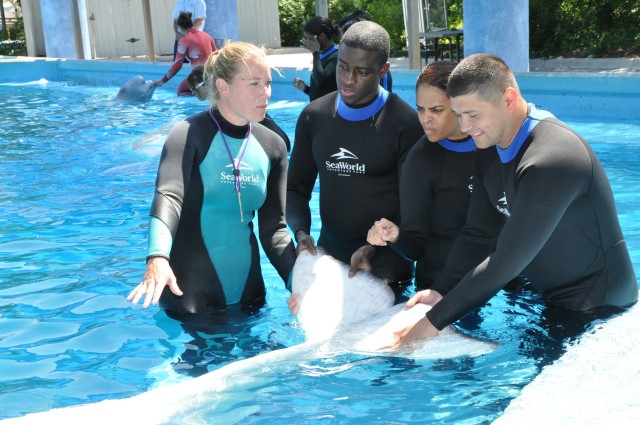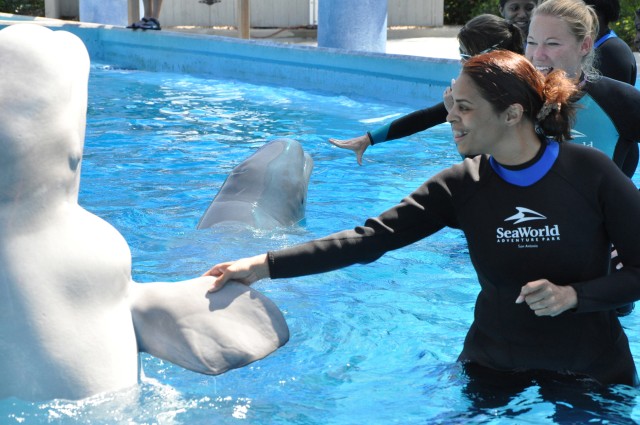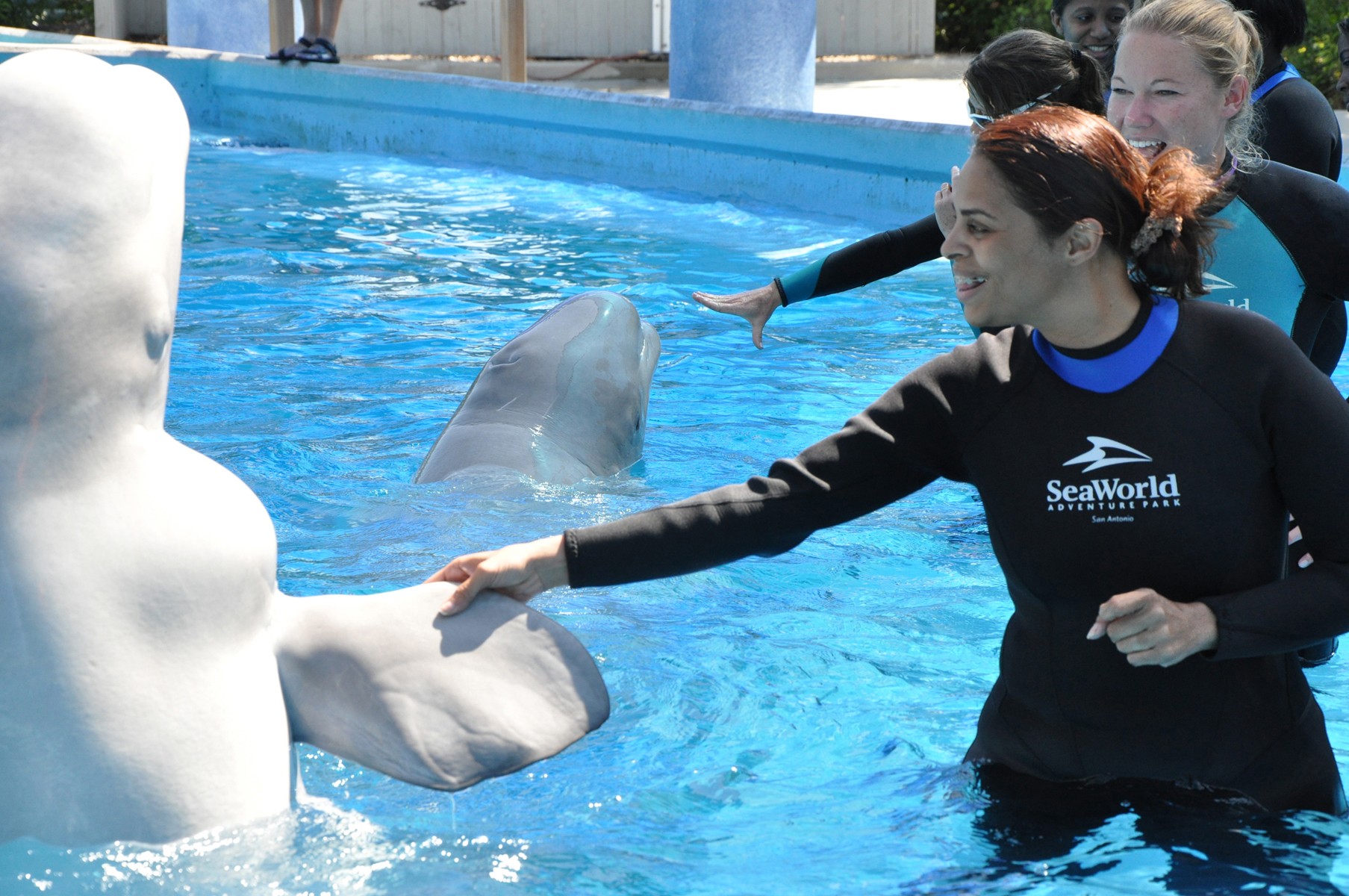FORT SAM HOUSTON, Texas -- Sgt. 1st Class Burt Hensley could not stop grinning from ear to ear as he stared at a photograph of a beluga whale kissing his cheek. He was not alone.
Hensley and nine of his fellow Soldiers from the Department of Medical Sciences floated, danced and shook "fins" with beluga whales during a unique team-building event in cooperation with Northwest Vista College and SeaWorld.
At the end of the session each Soldier received a photo of a whale "kissing" his or her cheek.
Interaction with the whales was part of Whale Done!™ The Power of Positive Relationships program that includes six hours of classroom training followed by two hours in the pool with whales.
Based on the principles of positive reinforcement espoused by Ken Blanchard and his coauthors from SeaWorld in a book by the same name, the program utilizes the techniques animal trainers use to influence human relationships, motivation and productivity in the workplace.
"This program is an excellent tool because it's a change-agent model," said Tracy James, an instructional systems specialist with the METC Transformation Integration Office.
"The main point of the training is to equip our [noncommissioned officers] and officers with tools to build, improve, and sustain inter-service relationships and model that behavior to our students and customers as most of DMS courses migrate into METC," James said.
Hensley said the program provided him with tools he can use that will affect the way he counsels Soldiers; and the fact that those he counsels are leaders will double the program's effectiveness.
"It will be a chain reaction down the line," said Hensley, who is currently with DMS Physician Extender Branch and Respiratory Therapy.
"What we teach is to redirect the negative energy," said Valerie Fluellen, an adjunct instructor with Northwest Vista College who taught the classroom portion for the Soldiers.
"Interaction with the whales reinforces the learning. For example, the three second pause is similar to the redirection response - you don't focus on the negative behavior, you change it, turn it into a positive.
Unacceptable behaviors or mistakes from whales trigger what Megan Medina, a trainer with SeaWorld, called the least reinforcing scenario, where they are still for three seconds; offering only a boring neutral response.
Acceptable behaviors elicit food, toys or other devices that communicate the trainer's satisfaction causing the animals to increase that behavior.
"If a whale is given the hand signal to sing and it does a hula dance that is not the behavior requested and the trainer will be still, offering no enticement, then try again," Medina said.
"If the correct behavior is not elicited on the second request, the trainer will try a different tact perhaps requesting a totally different behavior."
Human behavior can be redirected as well. "Rather than creating a "got-cha" response, you're looking for what's going well. And when mistakes happen, redirect the negative energy, turning it into something positive," Fluellen said. "It mirrors what the trainers do."
The management techniques fit well with DMS mission James said. "We are hard line in our field environment. But in our garrison environment we need to take a different approach, especially with the services meshing together."
She said the program is being received by the military in a very positive way.
"This class helped us to focus on the positive and stop behavior that will negatively impact students if they become discouraged and want to get out of school," said Sgt. 1st Class Cami Harris, with DMS Nutrition Care Branch.
"We have our way of dealing with Soldiers and each branch of the service does," agreed Staff Sgt. Shawon Tucker, also with Nutrition. "But this will help you step back and take a different route."
"It will help improve interaction with staff and the people we teach. It gives you the tools to get a better understanding of each other and become more sensitive to necessary interactions that need to take place," said Sgt. Earnest Sharp, who currently works in DMS Occupational Therapy Branch.
"When you work with animals you have to pay attention to their mannerisms.
"What you express in terms of your body language they pick up on, they read."
It shows that you can teach people and shape behavior just by being, Medina said.
Still staring at his photo and grinning broadly, Hensley summed up his lessons learned from the program. "The way we approach a Soldier when he or she makes a mistake is by helping the human to learn in a positive way just as interactions with the whales leaves a positive impression."




Social Sharing